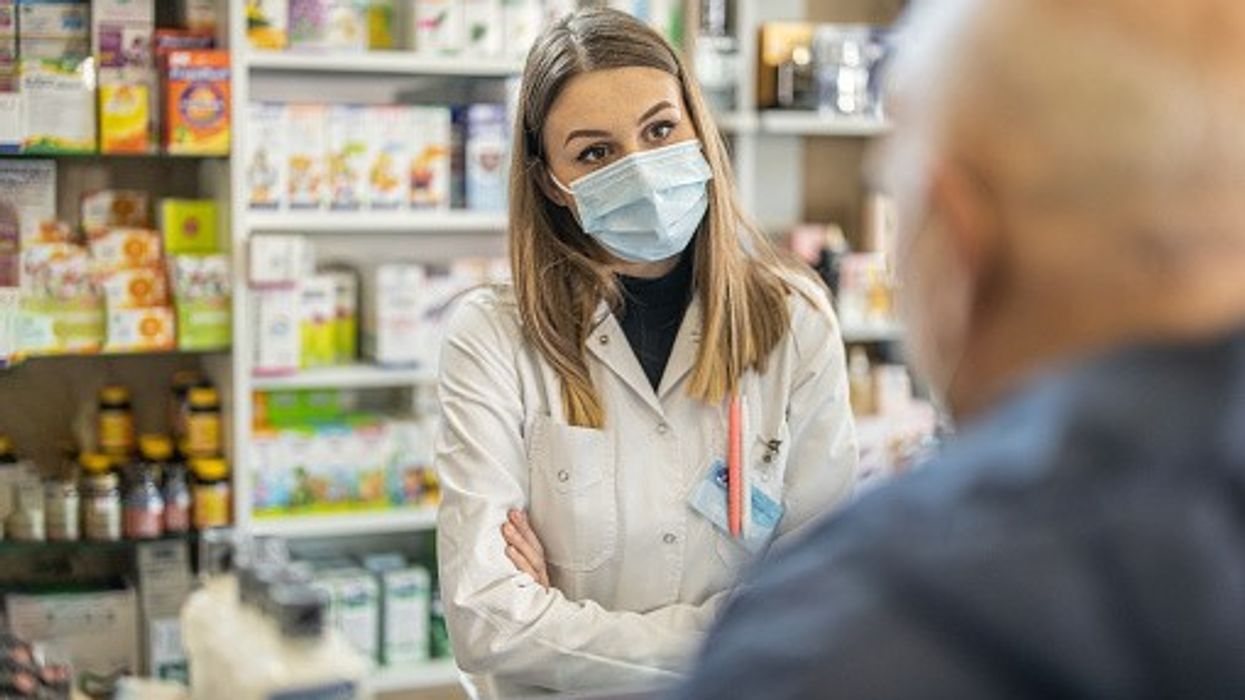NPA urges the government to provide sufficient investment in community pharmacy and to redress the lack of recognition given to the sector during the pandemic
In its closing oral statement to the UK Covid Inquiry Module 3 on Wednesday (27 November), the National Pharmacy Association (NPA) urged the government and NHS to “recast community pharmacy in their minds as a valuable partner in the post-pandemic recovery, and not as a cost center.”
The Inquiry was also asked to recommend sufficient government investment in the network and infrastructure needed to integrate community pharmacy into the broader health system and support effective cooperation across the health service.
Additionally, the NPA requested that the significant contribution of community pharmacy to the pandemic response be reflected in the Module 3 findings to “redress the lack of recognition they received throughout the pandemic.”
The NPA's closing statement addressed four key issues – the role of community pharmacy, the impact on pharmacy teams, the resilience of the pharmacy network, and the lack of recognition given to the sector during the pandemic and since.
Lee John-Charles, speaking for the NPA, told the Inquiry that “Community pharmacy became the first port of call for patients seeking health advice during the pandemic.”
“Many community pharmacies went to great and heroic lengths to ensure that their services were maintained during the pandemic and demonstrated the value of the network of community pharmacies across the country.”
He went on to highlight how community pharmacies stepped up in the crisis, in so many different ways, from providing a safe space to support victims of domestic violence to distributing lateral flow tests and maintaining the safe supply of medicines.
There was huge and increased demand for their pharmacy services as other parts of the NHS were required to limit availability.
Evidence submitted to the Inquiry by the Pharmaceutical Services Negotiating Committee showed that the average pharmacy carried out 15 informal patient consultations per day up to November 2020.
“If pharmacies had not been available, this would have led to an additional 65 appointments in each GP practice each week in England,” the NPA statement noted.
John-Charles also reminded the Inquiry that pharmacies administered some 40 million COVID 19 vaccinations.
Impact on pharmacy teams
John-Charles pointed out that the increased demand for community pharmacy during the pandemic had a significant impact on pharmacists and their teams, resulting in stress, fatigue, mental health issues, and financial hardship for many NPA members.
He mentioned the Royal pharmaceutical Society's workforce and wellbeing survey for 2022, which showed particularly high burnout scores for those working in community pharmacy.
NPA Nick Kaye attributed these scores to the uncertainty experienced by community pharmacists and their teams regarding issues such as securing the necessary PPE, obtaining essential medicines, and ensuring they could pay their staff.
Unequal treatment
Despite the crucial role community pharmacists and their teams played during the pandemic, they were “overlooked underrecognized, or excluded” and were “not treated equally with other frontline healthcare workers,” John-Charles pointed out.
The most significant and demoralising example of this different treatment by government was “the initial exclusion of pharmacy workers on the Life Assurance Scheme for frontline workers in England.”
Another example of the sidelining of community pharmacy was the initial lack of PPE through the NHS, requiring many pharmacy teams to source and fund their own PPE.
Pharmacists were unable to access the NHS PPE portal to order PPE until August 2020, some months into the pandemic.
“Pharmacy teams put themselves at risk to help the patients stay well, often working in close proximity to others and reusing PPE repeatedly for days or even weeks,” John-Charles told the Inquiry.
At the start of the pandemic, many people who worked in community pharmacy were not recognized as key workers, which would allow their children to attend school while they worked
Moreover, COVID-19 testing was initially unavailable for community pharmacy staff.
John-Charles added: “Community pharmacy was initially categorised as a retail setting, as opposed to healthcare establishment, which meant that entire pharmacy teams needed to self-isolate following a single positive case within the pharmacy.
"This resulted in fewer available staff and increased pressure on the remaining pharmacists and pharmacy teams.”
Lack of funding
The NPA identified a lack of resilience and funding issues as the fourth principal issue faced by the sector during the pandemic.
John-Charles told the Inquiry: “Community pharmacy entered the pandemic, facing financial and workforce crisis due to long-term under investment in the network.”
“These issues presented significant challenges for community pharmacy in responding to the pandemic and increased the difficulties in providing services to patients and maintaining staffing levels.”
The Inquiry also heard that about 1000 pharmacies have closed in England since the beginning of the pandemic - making the healthcare system less resilient overall to respond to future crises.
The NPA stressed the need for urgent action to redress the situation, warning that the vital services that community pharmacy provide may not be available to the same extent for future healthcare crisis.”
John-Charles also reminded the Inquiry about NPA chair's three simple asks to better enable pharmacists to fulfill their critical role in future pandemic – “Make sure that we here; Use us; and We are part of primary care.”
Kaye had indicated in his evidence that a cultural shift from the government is necessary to fully recognise that community pharmacy and their teams are generally part of the NHS family.
Public hearings for Module 3 (which focuses on the pandemic's impact on healthcare systems) will conclude tomorrow, 28 November, with a report on the findings expected to be published no earlier than late 2025.
The NPA is a core participant of the Module 4 of the Inquiry, which will examine the development of Covid-19 vaccines and the implementation of the vaccination roll out programme. It will start public hearings on 14 January 2025.













